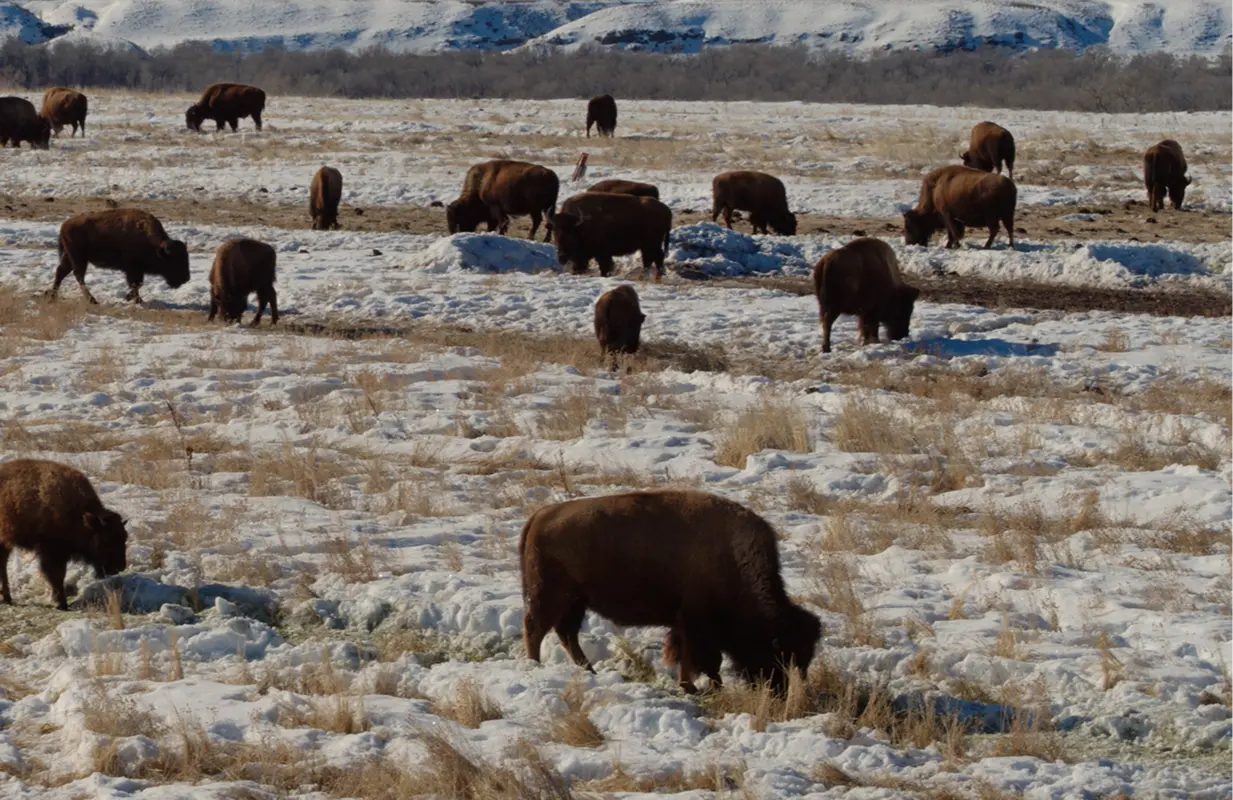Finished Ken Burns' American Buffalo Doc? Then It's Time for Homecoming
-
 Still from Homecoming, a companion film to the Ken Burns doc The American Buffalo (Photo: PBS)
Still from Homecoming, a companion film to the Ken Burns doc The American Buffalo (Photo: PBS)The TV landscape is shifting, but there’s one thing we can still count on: the arrival of a riveting new Ken Burns documentary. The documentarian extraordinaire has once again teamed up with PBS, this time for The American Buffalo, which provides an eye-opening look at the history of the bison.
The two-part documentary premiered October 16, and is now streaming on the PBS site and app. Burns’ usual meditative approach serves him well as he and his team track 10,000 years of North American history, following the bison from the Rocky Mountains to Lake Erie to Florida, when they numbered in the tens of millions, sharing an ecosystem with Indigenous peoples for millennia. The bison has always been more than just a source of food for Indigenous peoples. As the Pulitzer-winning Kiowa author N. Scott Momaday describes the connection: “We are friends, we are brothers, we are related.”
But there’s also a greater sense of urgency to Burns’ latest — American Buffalo gets off to a bracing start by underscoring just how close to extinction the species has come before delving into the restoration movement. And though there’s a strong undercurrent of hope throughout, Burns never loses sight of the devastating effects of colonization by European settlers, which led to the genocide of Indigenous tribes and the near-annihilation of the bison, and which Indigenous people still contend with to this day.
The American Buffalo premiered ahead of the theatrical release of Martin Scorsese’s Killers of the Flower Moon, which is due in theaters this weekend and also explores the exploitation of Indigenous peoples. But PBS has just released a short companion film to Burns’ four-hour documentary, Homecoming, which is already streaming on the PBS site and app. The 18-minute doc was directed by Julianna Brannum, a citizen of the Comanche Nation who also served as a consulting producer on American Buffalo, and is dedicated to the InterTribal Buffalo Council (ITBC), a foundational group that’s been “a guiding force in the food sovereignty and cultural revitalization movements led by tribal citizens across the United States.”
In addition to highlighting the ITBC’s important mission, the film follows council member Jason Baldes, an Eastern Shoshone who also served as an advisor for American Buffalo, as he leads the historic transfers of bison from Denver, Colorado to Wyoming’s Wind River Reservation (where he hails from) and from a Nature Conservancy Preserve in Illinois to the Menominee in Wisconsin. Homecoming might not be as long as American Buffalo, but it’s just as substantive, centering the discussion in the present before looking to the future. Brannum examines what it means for Native people today to be able to live among the bison, especially after dealing with the effects of their decimation for generations. Just as important, her documentary imagines what things will look like for future generations of Indigenous people.
And if, once you’re done with American Buffalo and its companion film Homecoming, you’re looking for even more Native American history and contemporary portraiture, Season 2 of Native America premieres October 24 on PBS.
Homecoming is streaming on PBS.org and PBS App and will debut November 24 on PBS’s YouTube Channel.
Danette Chavez is the Editor-in-Chief of Primetimer and its biggest fan of puns.
TOPICS: The American Buffalo, PBS, Homecoming, Julianna Brannum, Ken Burns